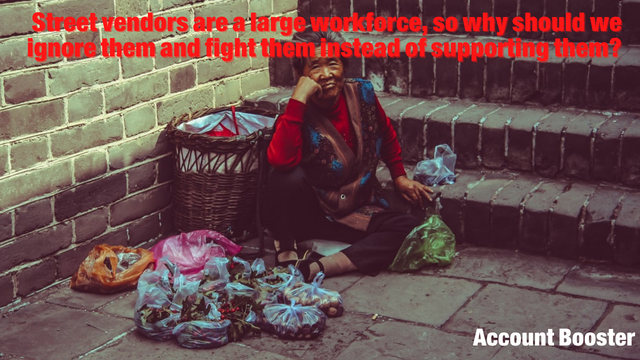Some economic reports that dealt with the issue of street vendors confirm that this type of merchant dates back to several centuries ago, but it was linked to the needs of people and passed on to the present generations.
And now street vendors are an integral part of urban economies around the world, through them, a wide range of goods and services are provided in public places in an easy and affordable way. They sell everything from fresh vegetables and fruits to prepared foods, poultry, fish, clothes, and carpets, and they also provide services that vary over time.
An IEMS study revealed several ways in which street vendors serve their communities, including:

They provide the main source of income for their families.
They sell the products of the factories and thus they assist in distributing their production to various segments of consumers.
They also serve the consumer by delivering the goods to him where he is, and they may reduce the price because they do not pay rent for a store, do not secure goods, nor ... so they can sell things at cheap prices.
They contribute to the creation of job opportunities for others, such as porters, truck drivers that roam, warehouse owners, and others.
Street trade adds vitality in many places, and some of them offer traditional products and popular dishes, while they are under the heading of cultural and tourism services.
Despite their contributions, street vendors face many challenges and are often overlooked and, on the contrary, hindered rather than assisted by policies and municipal practices.
Hence, I wonder: had it not been for the society in dire need of the profession of the traveling salesman, this profession would not have withstood the test of time and would not have passed from one generation to the next, and would not have been constantly updated in terms of appeal, method of sale, quality of goods and services provided. Nevertheless, most of us prefer to go shopping from supermarkets and malls, although these sellers deserve our support and encouragement, because in the end they serve the community and themselves and follow an honest way.
Here we move to another point, which is the lack of control over these vendors in a number of countries, which may facilitate the penetration of criminals and swindlers among them easily, so how do we differentiate between this and that and how do we protect ourselves if the fraud is on us one time? Is it possible to solve this problem by including them in the formal economy in any way so that we impose on them taxes and registration fees ... etc, thus providing confidence in their personalities and reducing the swindling operations, and at the same time we generate income for the governments through payments of licenses, permits, fees, fines and other taxes. Or will we pay the sellers to flee because their income is barely enough and does not bear the luxury of registration fees?